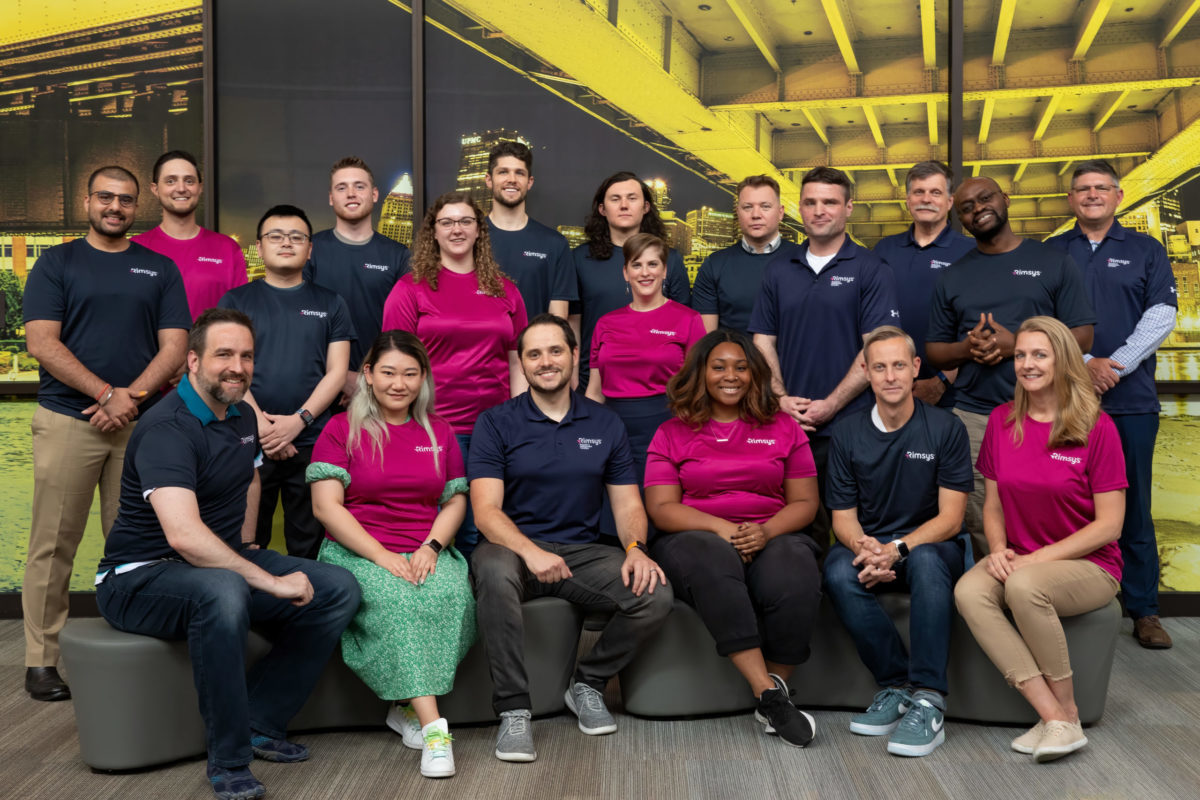A top early-stage investment fund just took a big bet on a Pittsburgh software startup.
In one of the biggest deals this quarter, Rimsys announced a $16 million Series A round led by Bessemer Venture Partners, a prominent Silicon Valley fund with previous investments that include LinkedIn, Pinterest, Twitch, Shopify and more. Also participating in the round were Allos Ventures, Private Opportunities and Pittsburgh’s Innovation Works. As part of the deal, Bessemer Partner Andrew Hedin will join Rimsys’ board of directors, as will software analytics company Pendo cofounder Eric Boduch.
In addition to announcing the latest funding round, Rimsys also shared the news of two recent hires: former Philips head of post-market surveillance Adam Price as director of product and former Thermo Fisher Scientific leader and business partner Christine Robertson as director of implementation.
Rimsys specializes in the development of regulatory information management (RIM) software for medical device companies working in an ever-changing world of regulations and healthcare product updates. Using cloud-based software hosted by Amazon Web Services, Rimsys’ RIM platform helps medical device manufacturers keep track of compliances, documentation and other data to make product launches more efficient.

James Gianoutsos. (Courtesy photo)
“What it comes down to is that if a manufacturer has, say, 10,000 products, they need to track each one of those 10,000 products individually, based on where it’s sold and where it is authorized to be sold within each market,” Rimsys President James Gianoutsos told Technical.ly. “There’s about 130-plus markets throughout the world, so, 10,000 times 130. That’s a lot of specific information that you need to track and maintain.”
From his years working in quality assurance in the medical device world, Gianoutsos knew that this process was often inefficient and involved disorganized tracking of Excel sheets or other documents rather than cohesive software solution. So he launched Rimsys in 2017 with his cofounder and CTO Brad Ryba. From there, the two grew their team and built the RIM platform to make the company’s first sale in 2019.
The tech behind the platform is modeled after an existing standard in the life sciences industry, known as GxP — compliances related to good laboratory practices, good clinical practices, good manufacturing practices and more. And while these requirements are omnipresent throughout the medical world, the specifics of them change with every product or device.
“And so when we built the architecture in AWS for Rimsys in terms of the way that the servers are managed, the database, security rules around that, the virtual private cloud structure that really keeps everything secure, redundant backups — all of that is modeled after GxP,” Ryba said. By creating Rimsys with the form of an existing industry standard, inputting necessary data and compliance information was easier.
Some of the top life sciences companies started to notice.
“When we started this, it was actually catered to small and medium-sized businesses,” Gianoutsos said. “But then it grew. And then all the big guys started coming after us like Thermo Fisher, Siemens Healthineers, Johnson & Johnson, Smith and Nephew — like the biggest companies in the world started coming after us [to be clients] because they saw the value and saw that it was so specific to medtech.”
Those big customers are part of what attracted Bessemer to support Rimsys in its Series A round. That new financial support, Gianoutsos and Ryba said, will help the company grow to meet such companies’ needs, both locally and internationally. In the last year alone, Rimsys has had more than 300% revenue growth, they said.

Brad Ryba. (Courtesy photo)
For Pittsburgh, that means new jobs. Gianoutsos said the full-time team at Rimsys is at around 30 people, and the company has plans to double or even triple that in 2022. That will include both technical talent and other business operations as needed; see its current open roles. The team has been alternating between remote work and offices at North Shore coworking space Alloy 26, and while Rimsys won’t necessarily limit its talent search to Pittsburgh, Gianoutsos acknowledged that the technical talent here is an asset to the company’s growth.
The news of this deal also comes on the tide of growing life sciences success locally. Already this year, two companies have gone public while institutions have put new funding and community organizing efforts towards leveraging the medical talent here.
But building Rimsys in Pittsburgh goes beyond the resources here for Gianoutsos.
“You know, I was born and raised in Pittsburgh, and so it’s really cool to see this come out, and to be quite honest, I’m really proud of it,” he said. “I’ve been in the startup community for quite a while, and I haven’t seen many deals of this size come into the Pittsburgh area, especially from a top tier VC like Bessemer.”
Sophie Burkholder is a 2021-2022 corps member for Report for America, an initiative of The Groundtruth Project that pairs young journalists with local newsrooms. This position is supported by the Heinz Endowments.Before you go...
Please consider supporting Technical.ly to keep our independent journalism strong. Unlike most business-focused media outlets, we don’t have a paywall. Instead, we count on your personal and organizational support.
Join our growing Slack community
Join 5,000 tech professionals and entrepreneurs in our community Slack today!

The person charged in the UnitedHealthcare CEO shooting had a ton of tech connections

From rejection to innovation: How I built a tool to beat AI hiring algorithms at their own game

The billion-dollar creator industry hits Pittsburgh — and disrupts the innovation economy


